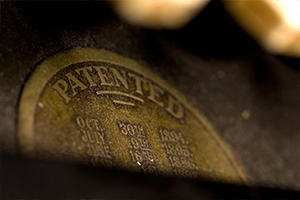
Inventors have a right to protect their inventions through the United States Patent and Trademark Office (USPTO). With the creation of a device come a bundle of property rights issued by the United States Government. A patent prevents all “others from making, using, or selling the invention in the United States.” The patent may survive for varying periods of time, depending on what type of patent is applied for and issued. Typically, protection does not activate until the patent is legally granted.
Not all creations can be patented. Only a device that is “new, non-obvious and useful” may qualify for a “utility patent.” Abstract or theoretical concepts or ideas may not be protected by means of a patent. Likewise, an invention is not patentable if it has been “publically disclosed.” In order to determine this, patent searches should be conducted prior to filing an application. These searches may be very complex and an attorney’s instruction is advised.
Creations that cannot be approved under patent law may still be protectable through another method, such as trademark or copyright law. An intellectual property (IP) attorney can help advise clients about making the appropriate distinctions. An IP attorney is available not only to educate clients on the various application requirements for all types of intellectual property, but is prepared to provide provisional or non-provisional applications for patents. A non-provisional application establishes the filing date of the patent application, beginning the application process. A provisional application only establishes the filing date and automatically expires after one year.
If there is more than one person involved in the creation of an invention, the partners may need to file an application as "joint inventors." Unfortunately, there are often disputes concerning which individual actually created the invention; sometime both parties claim to be the "sole inventor." Usually, after thoroughly analyzing all the facts, the attorney(s) can determine whether one or both inventors have the right to file the patent or whether they should file jointly.
There are several fees involved in obtaining a patent license, including filing, issuance, and maintenance fees. An experienced IP attorney can inform clients of the timetable they will be responsible for, and clarify when various terms, such as "patent pending" or "patent applied for" are supposed to be used to keep the public updated regarding where the inventor is in the patent application process.